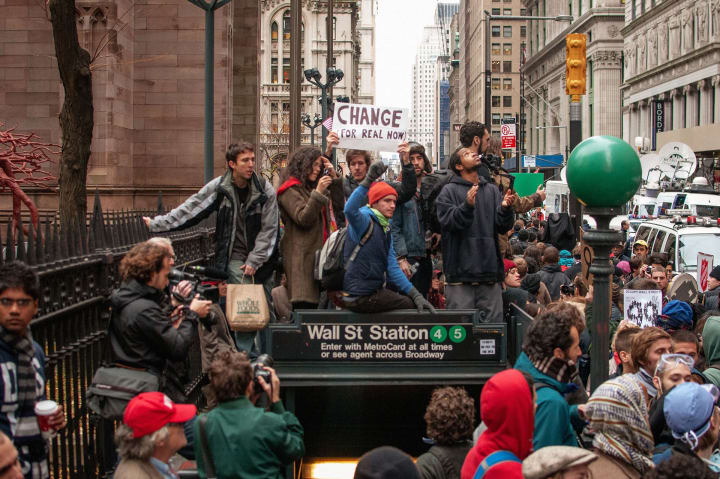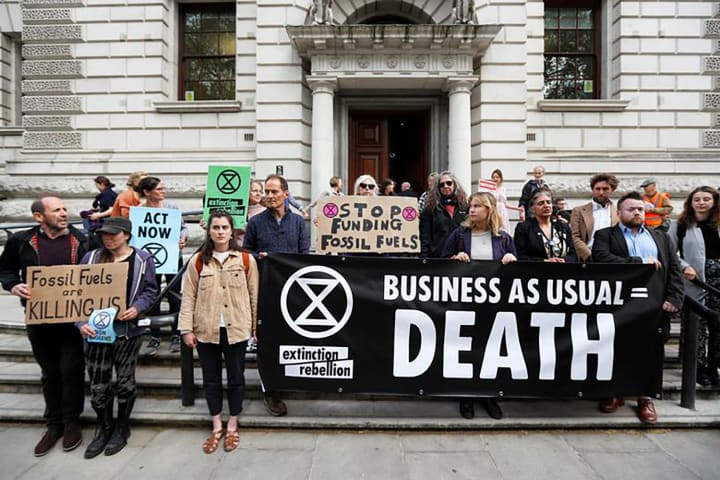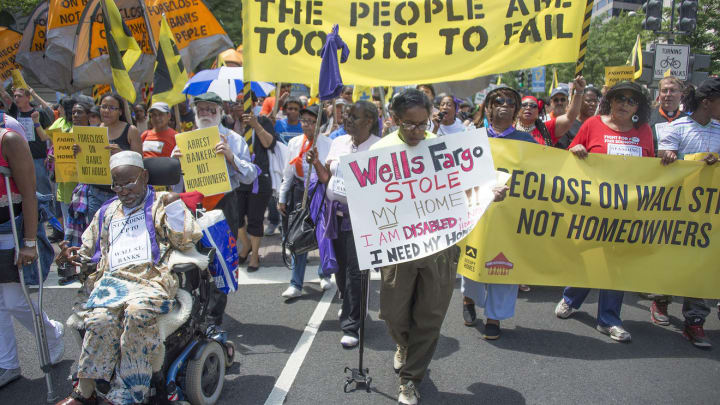How Did We Get Here?
The rise of naked shorting is often attributed to a number of factors, including changes in market regulations, advances in technology, and the growth of hedge funds and other institutional investors.

This article was originally published on CEOBLOC by Jeremy Frommer.
“Creatd is being delisted from the Nasdaq on September 2, 2022.”
My attorney's words hurt like a pain that you don't want to get up from. But then I visualized all the carnage that comes along with giving up. I dug so deep, I didn't know that I had that depth, burying any emotional obstacles and zeroing in on one singular idea. Survival. I had to cauterize the wound and move on as fast as I could. There were too many people depending on me–investors, employees, vendors, clients, friends and family.
In today's market environment, the vast majority of CEOs in publicly traded companies are literally at war with the very same people they need to work with, and oftentimes they are not armed with the right tools to win. Reaching profitability has become a race against time, and a noose around the neck of entrepreneurs who, in the last decade, attempted to access the public markets to build a company. The public markets–particularly the OTC and small-cap NASDAQ and the over 20,000 stocks that trade there–were established to facilitate the American entrepreneurial dream. But that is not what it is morphed into. Today, a CEO of a publicly traded company requires an amazing team to run the day-to-day operations so that they can actually fight market headwinds and investigate the technicals of the day-to-day movements of their stock. And while there are opportunities in this process to uncover nefarious enemies, it turns out the true problem is far more systemic.
The rise of naked shorting is often attributed to a number of factors, including changes in market regulations, advances in technology, and the growth of hedge funds and other institutional investors. In the past, many regulators believed that naked shorting was not a significant problem, as the practice was relatively uncommon and was difficult to detect. However, as hedge funds and other institutional investors grew in size and influence, and as new technologies made it easier to execute short sales, the potential for abuse rose along with it. It's important to note that short-selling itself is not illegal, it's a strategy that allows traders to make money when a stock falls in value. Naked short selling is what is illegal because it allows traders to create an oversupply of shares that don't really exist and artificially pushes the stock price down.
In the United States, the SEC (Securities and Exchange Commission) introduced new rules in 2008-2009 to attempt to curb the practice, by introducing a locates requirement and close-out rules. The SEC also tightened rules for short selling, requiring traders to have a reasonable belief that shares can be borrowed before selling them short.
At the root of all of this is a lack of transparency and a reliance on legacy platforms that no longer guarantee the safety of the retail investor. It took nearly a decade to see an increase in demand that has now led to short conditions in the markets that could very well have a contagion impact that winds its way into the mid-cap and large-cap space. This would create the need for a reassessment of valuations within the stock market as a whole, given what has been the creation of a synthetic depression of valuations. Again, this synthetic depression is one that should not occur under normal market trading circumstances. Algorithms should not have continued to fill retail orders, irrespective of locates. The regulators who, for the most part, do want fair and equitable market conditions are not unilaterally equipped to solve such a complex problem. To fix the problem would require an enormously expensive technology expenditure across the system. For more on this practice, I encourage you to read Alan Pollack’s piece detailing the mechanics of naked shorting.
The battle to combat these abusive practices is fought on multiple fronts, including the media, the political landscape, and within the regulatory environment. Creatd is a technology company, one that has a tremendous understanding of the power of data and more importantly, how to apply it to achieve maximum gain. The company will use its data–its core strength–to identify and reach those who have the ability to effect real change.
But it takes an army to win a war. And so, we launched CEOBloc, established to be a bloc of public CEOs, executives, and shareholders committed to putting an end to naked short selling.
CEO Bloc is a force against the systemic vulnerabilities inherent in today’s capital markets environment. In partnership with our members, our organization exists to create a united front against the pitfalls that put smaller-cap companies at risk–including issues with regulation and transparency that create outsized obstacles for the ‘little guy.’
For too long there have been scattered efforts, but not enough real change. There’s been work but, but not that has yet yielded real reward. And the problem seems to only be getting worse.
We’ve seen this fight–that of the oppressive power of the largest financial authorities–rear its head in various forms in the last 30-ish years. Some examples include...
Occupy Wall Street

The Occupy Wall Street movement, which began in 2011, was a protest movement that focused on issues related to economic inequality and the influence of corporate interests on government policy. The movement was characterized by protesters setting up camps in public spaces, such as Zuccotti Park in New York City's Financial District, and staging demonstrations and other events to draw attention to their cause. The Occupy Wall Street movement inspired similar protests around the world, including the "Occupy London" movement in the United Kingdom.
London Goldman Sachs protests

In 2010, a group of protesters targeted the London offices of Goldman Sachs, one of the largest investment banks in the world, to protest against the bank's role in the financial crisis. The protesters were part of the wider "Occupy London" movement, which was inspired by the Occupy Wall Street protests in the United States.
Mortgage crisis protests

In the wake of the 2008 financial crisis, there were a number of protests and demonstrations by homeowners and activists who were affected by the crisis and the resulting foreclosures. These protests took place across the United States and included the "Take Back the Land" movement, which sought to draw attention to the issue of foreclosed properties being left abandoned in neighborhoods.
Bank Transfer Day

In 2011, a grassroots campaign called "Bank Transfer Day" encouraged individuals to move their money from large banks to credit unions and community banks in protest of high fees and corporate greed. The campaign gained widespread attention on social media and was credited with prompting a significant number of people to switch financial institutions.
In their own way, each of these movements sought to challenge the perceived negative effects of corporate power and to advocate for greater accountability and fairness in the economic system. Both movements also focused on issues related to economic inequality and the concentration of wealth and power in the hands of a few large institutions. Finally, both movements used tactics such as protests, demonstrations, and grassroots organizing to draw attention to their causes and to advocate for change.
What CEO Bloc is doing is the next iteration in this story of the Davids against the corporate Goliath. The difference here is that while those movements each had various degrees of key advantages (capital resources, media attention, public interest, policy support, leadership, strong technology, data insights, etc.). We have a plan of action and an organization underneath us. We have vision, strong leadership, and above all, we have incentive. And by this I mean–none of us will survive if the movement doesn’t prosper. Our livelihoods and legacies depend on it. And so I feel it’s incumbent upon me to do my job. To lead a charge. To fight this fight, for my company and others like it.
About the Creator
Jeremy Frommer
Chairman & Co-Founder of Creatd ($CRTD) and Vocal. We have much work to do together.
Enjoyed the story? Support the Creator.
Subscribe for free to receive all their stories in your feed. You could also pledge your support or give them a one-off tip, letting them know you appreciate their work.
Reader insights
Nice work
Very well written. Keep up the good work!
Top insights
Expert insights and opinions
Arguments were carefully researched and presented
Eye opening
Niche topic & fresh perspectives
On-point and relevant
Writing reflected the title & theme






Comments (1)
We don't know each other. I'm a 2+ year writer on Vocal. From my POV- it looks to me that you are making good changes, engaging with the public, inviting feedback and encouraging involvement with the writers. Thank you for all that you are doing to keep this platform relevant AND viable!